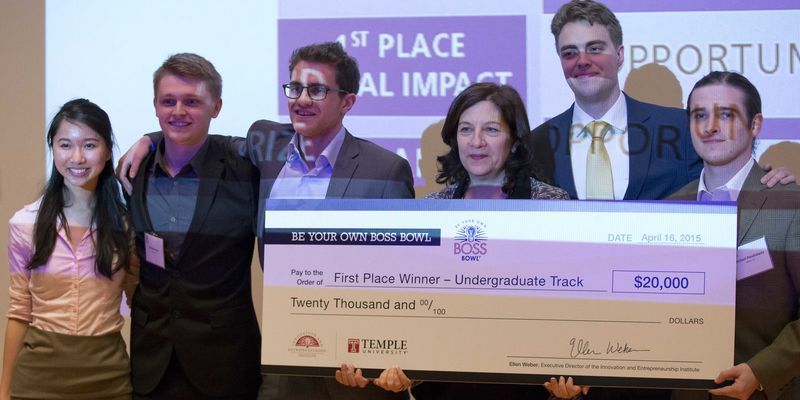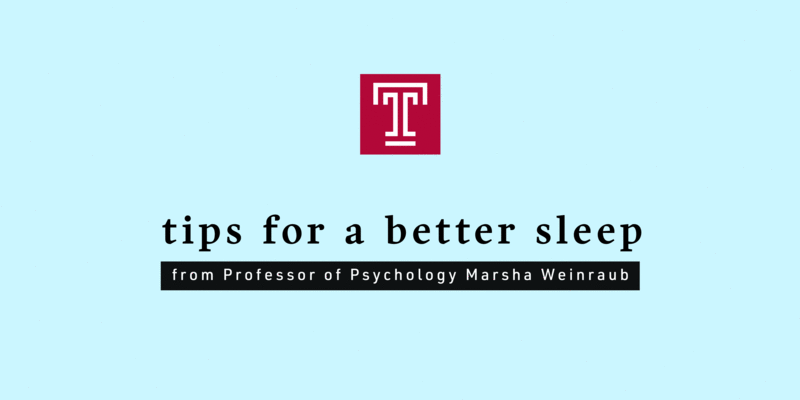Fox mindfulness sessions help staff and students manage stress
Maureen Cannon, senior associate director for Fox Management Consulting at the Fox School of Business, is supporting her community’s mental health with sessions for students, staff and small business owners.

For many of us, the uncertainty of life during the coronavirus pandemic has made finding a moment to focus more important than ever. The Fox School of Business has stepped up to help, offering mindfulness sessions to support staff, small business owners and students.
Maureen Cannon, senior associate director for Fox Management Consulting and program director of Fox Board Fellows, started hosting the sessions in January as part of a series run by the Administrative Programs Council (APC), which supports staff at both the Fox School and the School of Sport, Tourism and Hospitality Management (STHM).
The sessions covered how staff might apply mindfulness techniques in the workplace and the response was positive.
And then the pandemic hit. “Everybody was concerned about their own mental health and wherewithal and being able to manage this,” said Megan Alt, associate director of marketing and communications at Fox. The sessions became a way for the school to support its community’s mental health during a challenging time.
Cannon describes mindfulness as a form of meditation. “It’s being in the present moment,” she said. “It can be practiced sitting in silence, it can be practiced in the midst of chaos.
“We often start with a place where it's quiet because it's easier,” she said. “Then once you develop that habit of mindfulness, you can start applying it amid the busyness of life and all those distractions.”
For Alt, who’s attended a few of Cannon’s sessions, mindfulness helps her sort through her thoughts and how they lead to emotions. “I'm a huge logic brain person,” she said. “Being able to think about how I can choose to use my thoughts and emotions to support [productive] outcomes was really helpful.”
Seeing the positive impact mindfulness was having on Fox and STHM staff, the Small Business Development Center (SBDC) asked Cannon if she could help some of their clients as well. “It was right around the time when the first wave of PPP [Paycheck Protection Program] funding had dried up,” Cannon said, “and they knew there were a lot of entrepreneurs and small business owners left with even more stress.”
Students needed help too. Jim Alton, manager of graduate student services at STHM, got in touch with Cannon after talking with students in the master of science in Sport Business program. “He has such a personal touch with his students, he touches base with each of them individually, and he said that he’d been picking up on a lot of stress,” Cannon said.
Alton worked with her to create Mindful Mondays with Maureen, a series specifically for students in the program that they’ve been running throughout October.
Cannon feels mindfulness is particularly helpful now. “As much as you try to make your world certain, uncertainty is inevitable,” she said. “Right now the uncertainty is heightened.”
Even small disruptions to our routines can trigger a great deal of stress as we juggle the demands of the pandemic and working and learning from home. It’s so easy, she said, “to get caught up in our habitual ways of reacting to things that are intense [and] stressful.”
Mindfulness helps us identify unhelpful patterns in our responses and restore balance.
But clearing our minds doesn’t mean stopping our thoughts. “Our brains are supposed to think. That’s what they’re there for [and] we should be thrilled that they’re activated and exercising,” Cannon said. “Mindfulness is about watching them and noticing how we think.”
The benefits aren’t always apparent in a session, she said, but they ripple out into your life because you practiced it.
—Edirin Oputu


